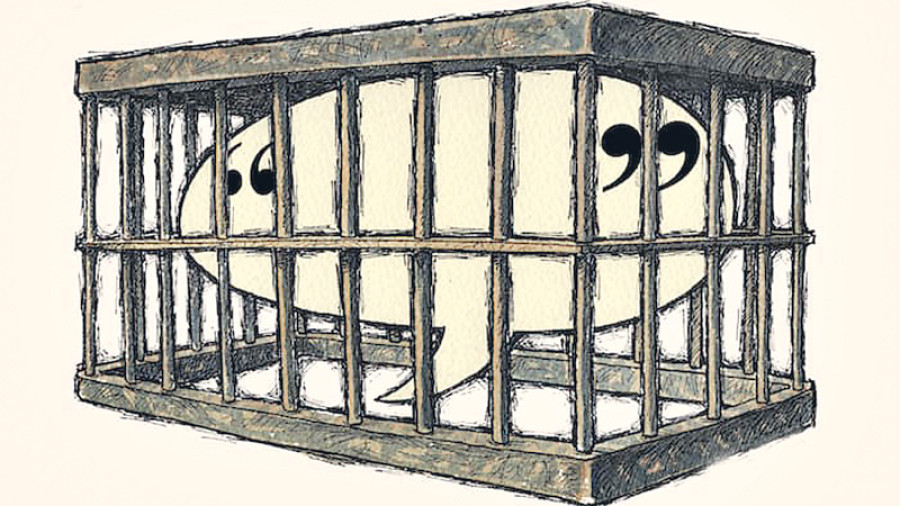Editorial
Eerie silence
The cost of not speaking up against blatant attack on free speech could be too high for our democracy.
After nine days of incarceration, Kailash Sirohiya, the publisher of Kantipur Media Group who was arrested by Nepal Police at the behest of Home Minister Rabi Lamichhane, has finally been released. Riled by the consistent investigative reporting by Kantipur Publications on Lamichhane’s alleged involvement in the cooperative fraud case, Lamichhane abused his authority to go against the publisher without following due legal process. Now that the matter is in the court, the Post refrains from making any statement on the merit of the alleged document forgery case, which Sirohiya has summarily rejected in his media brief shortly before his arrest and in his submission to the court.
But the Sirohiya arrest imbroglio has brought to the fore a major crisis in civic engagement on issues that matter. The civil society was certainly shocked by the extent to which Lamichhane chased a media owner for unfavourable reporting about him. The social media was abuzz with outcry about the way in which the media’s right to report freely and fearlessly was being curtailed by the state on the whims of the home minister and, by extension, the prime minister. But the voices of civil society members sounded a bit too feeble on the face of a blatant attempt to silence an old pillar of mainstream media.
Earlier this week, a video appeared on social media where the comedian duo Madan Krishna Shrestha and Hari Bansha Acharya apologised to an unspecified audience for a so-called mistake they made while speaking on an unidentified issue. But it was not difficult to understand that they were forced to apologise for speaking their mind on the controversy surrounding the home minister’s high-handedness and direct interest in getting Sirohiya arrested. That a comedian duo that has spent more than four decades criticising the injustices and ironies of Nepali society could be forced to apologise for holding an opinion shows the extent to which the Nepali intellectual space has shrunk.
Moreover, the silence of a significant section of the civil society and the general public on many other social concerns is deafening. At a time when the propaganda peddled by populist politicians is taking a disproportionately big space in social media, critical voices that have the ability to take anti-current beliefs are taking a backseat. As critical voices are the backbone of a strong democracy, their absence in public spaces threatens to turn our society spineless. Civil society members cannot be complicit in democratic backsliding in Nepal, for they have a history of standing up for justice and freedom even under authoritarian regimes. The popularity of populist leaders with no democratic credentials fades as quickly as they rise to the top of the political game. But democratic backsliding, once it begins, is hard to reverse.
Anecdotes suggest that even a major section of the RSP leadership believes the party president and home minister brought negative publicity to their novice party by going against free media, but they dare not question their leader publicly. This could come back to haunt them. There could come a time when Rabi Lamichhane cannot speak his mind fearing a boycott of his own fans. That is the only logical conclusion of the mob frenzy—it spares no one, not even the instigators of the frenzy.




 10.12°C Kathmandu
10.12°C Kathmandu













